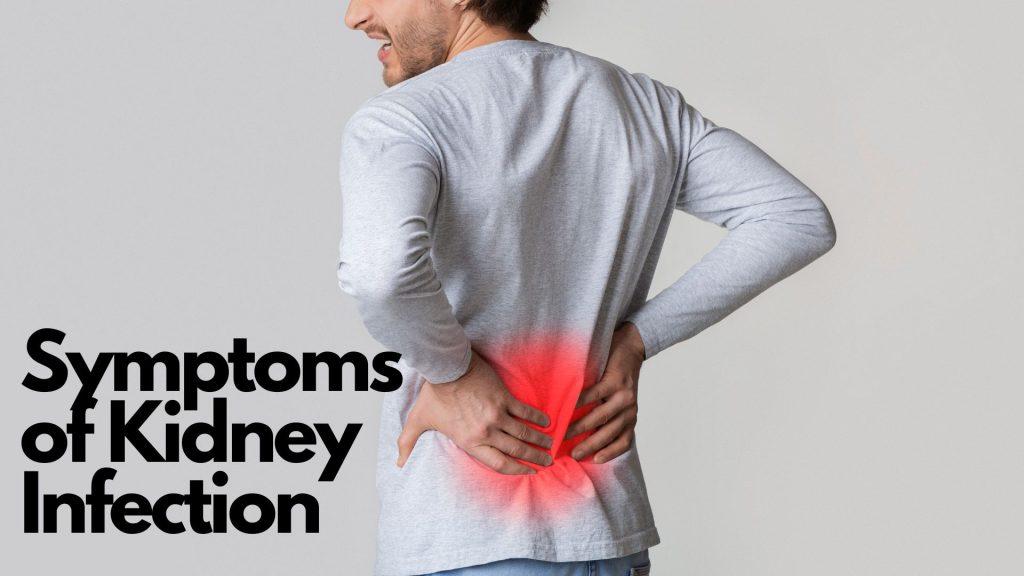
Kidney infection is severe urinary tract infections(UTI) that can lead to dangerous complications if not treated. Here are some symptoms, causes, and treatment options. This article explains the warning signs, causes of kidney infections, and how to treat them.
What is a Kidney Infection?
A kidney infection happens when bacteria move to one or both kidneys. It’s a kind of urinary tract infection (UTI) that can become serious if not treated promptly.
How Do You Get a Kidney Infection?
Bacteria take their first steps into the urinary tract via the urethra.
It spreads from the bladder to the kidneys.
Untreated, bacteria reproduce and lead to inflammation.
An early diagnosis and timely therapy are essential in order to avoid complications.
Typical Signs of Renal Infection
Kidney infections can be painful and lead to serious health problems. Common signs include:
Pain and Discomfort
Intense pain in lower back or side
Abdominal cramps
Painful urination (dysuria)
Fever and Chills
Fever (high temperature (over 101 F))
Uncontrollable chills
Night sweats
Changes in Urine
Cloudy or foul-smelling urine
Pink or red urine (hematuria)
Frequent urge to urinate
Nausea and Vomiting
Feeling sick or weak
Loss of appetite
Fatigue and Weakness
Feeling excessively tired
Energetic insufficiency owing to stress of infection
Causes of Kidney Infections
Bacteria enter the urinary system and infect the kidneys, causing kidney infections. The most common causes are:
Untreated Urinary Tract Infections (UTIs)
Most kidney infections begin as bladder infections that move upward.
Escherichia coli (E. coli) is the most frequent bacterial offender.
Kidney Stones
Obstruction within the urinary tract disrupt normal urine flow.
Bacteria that get stuck multiply and cause an infection.
Weak Immune System
Diabetes, HIV and autoimmune diseases increase the risk of infections.
Enlarged Prostate (in men)
Can block the flow of urine, raising the risk of infections.
Pregnancy
Pregnant women are more prone due to hormone changes.
Use of Catheters
“Long-term use of catheters increases exposure to bacteria.
Risk Factors for Developing Kidney Infections
Some people are at greater risk of developing kidney infections, such as:
(urethra, makes people easier to infect)
Pregnant women
People with diabetes
People who have had kidney stones
Men with an enlarged prostate
Immunocompromised individuals
How to Figure Out If You Have a Kidney Infection
If you think you might have a kidney infection, go to your doctor as soon as possible. Several tests are used by doctors to confirm the diagnosis:
Urinalysis
Tests for bacteria, blood and white blood cells.
Urine Culture
Detects the specific bacteria causing the infection
Blood Tests
Detects Spread Of Infection And Kidney Function
Imaging Tests
Ultrasounds or CT scans will identify obstructions like kidney stones.
If you know someone who has had a kidney infection, kidney infection treatment options read more.
If you do get it, early treatment is key to preventing some nasty complications. Doctors suggest a mix of medicines and home remedies.
Antibiotics
First-line treatment for pyelonephritis (bacterial kidney infections).
Ciprofloxacin, Trimethoprim-sulfamethoxazole (Bactrim), and Amoxicillin are common options.
A course (7-14 days) is needed for it to cure the infection.
Pain Relievers
Over-the-counter ibuprofen or acetaminophen will help with discomfort and fever.
Increased Fluid Intake
Drinking a lot of water and unsweetened cranberry juice flushes out bacteria from the system.
HOSPITALIZATION (SEVERE CASES)
If the infection gets into the bloodstream (sepsis), IV antibiotics and fluids are required.
Home Remedies to Help Recovery
Some natural remedies can help speed recovery, though antibiotics are necessary:
Stay Hydrated
All of this on top of making sure I get 8-10 glasses of water per day.
Assists in flushing out bacteria and toxins.
Avoid Caffeine and Alcohol
Both can bother the bladder and make symptoms worse.
Use Heat Therapy
Use a warm compress to relieve kidney pain.
Eat a Healthy Diet
Add foods rich in probiotics, such as yogurt, to balance gut bacteria.
Cut down on sugar and processed foods to boost immunity.
Get Plenty of Rest
Sleeping help the body recover properly
Untreated kidney infections can result in serious complications.
Neglecting a kidney infection can result in severe health issues, including:
Permanent kidney damage
Blood poisoning (sepsis)
Chronic kidney disease (CKD)
High blood pressure
How to Reduce Your Risk of Getting Kidney Infections
As we always say prevention is better than cure. Here are some tips to help reduce your risk:
Drink Plenty of Water
Assists in flushing bacteria from the urinary tract.
Urinate After Intimacy
Assists in flushing out bacteria that have entered the urethra.
Wipe from Front to Back
Prevents bacteria from going into the urinary tract
Avoid Holding Urine
Keep your bladder empty to deter bacteria from thriving.
Wear Breathable Underwear
Cotton underwear helps avoid the buildup of bacteria.
Avoid Harsh Feminine Products
Perfumed sprays and douching disturb natural pH level.
Conclusion
Kidney infections are painful but can be treated if detected early. Identifying symptoms, learning about the causes, and adhering to treatment regimens can help avoid severe complications. If you think you have a kidney infection, see a doctor right away.
Simple preventive measures may help keep your kidneys safe and keep you healthy. So drink plenty of water, don’t be stingy with the soap and never ignore a urinary tract infection!
To receive more health related articles like this, follow us on this blog for the latest updates in medicine.

Very good